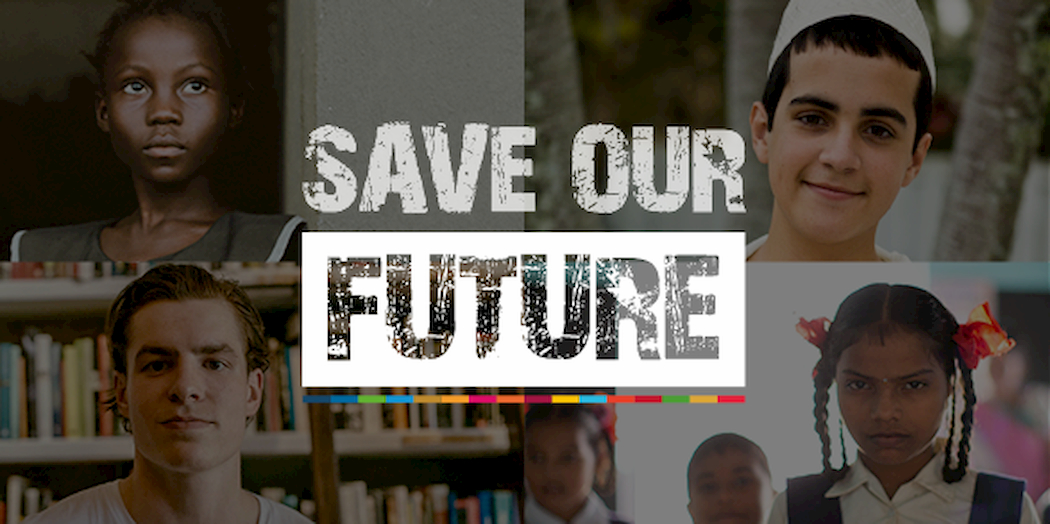A good education can be a gateway to a better quality of life for anyone if they are given the opportunity. So why is it that in today’s globalized world, many children are still not being offered the same opportunities granted to other peers?
This has become such a huge issue that the UN has declared Quality Education for all as one of its 17 Sustainable Development Goals. Amel Karboul is the CEO of the Education Outcomes Fund (EOF), who has recently partnered with UNICEF with the aim of supporting and funding better education outcomes for all.
We recently spoke with Amel to understand how COVID-19 has affected education around the world in the last year. We also found out how EOF is working to offer to as many children as possible the same education opportunities.

Why has education become such a huge problem globally that it is now pinpointed by SDG4, Quality Education for all?
Amel Karboul: Education has been a neglected child globally; it has been seen as a national problem and has not really attracted much attention. Outside of the education bubble, I do not think that people are really aware of the true scale of the problem.
Before COVID-19 we knew that by 2030, 50% of all children globally would be failing to learn and Covid has only compounded these issues. We know that 90% of children, almost 1.6billion, have had their education disrupted. We know that while technology has been helpful and successful for some, it has been little help if even available at all for most. Even in the UK, a rich and developed country, 30% of students in higher education could not access their online learning because they had no computer or no internet at home.
Naturally, in poorer countries, it has been even worse with sometimes only 10-30% of students able to access any form of online learning or technology. This has resulted in these children, maybe just getting one phone call a week from their teacher to check on progress if anything at all.
I have spent five years in the Education field now and what frustrates me is, as I always say, Education is the institution that has changed the least in the world. If you took a Doctor from 100 years ago and put them in a hospital, they wouldn’t be able to do anything, however, if we took a teacher from 100 years ago and put them in a modern day classroom they would probably still be able to do an adequate job.
How are you aiming to combat these problems and strive for quality education for all?
A.K.: The question is, what has been hindering us? Why are we unable to transcend this very traditional model? I think there is the complexity of updating human interaction compared to updating medicine for example. However, I also think that education is not something that you win elections with as there is a time lag associated with it. Those countries that manage to really transform their education into high performing systems are those where the people have long term visions for their countries and have chosen to invest in it.
We need more financial resources directed at education because we have more children, and also because 21st-century skills are more complex than anything that has been taught before. On the other side, the way that we are currently spending money as a society on education is not bringing the results we want to achieve.
This is one of the real drivers behind EOF, which is really to direct the financial resources we put into education into something that is going to actively help the children. Instead of plowing money into new buildings and masses of new books, invest in teachers and assistants who are helping these children learn.
This does mean putting our trust in teachers but also with the knowledge that they are being held accountable for the results and futures of our children’s education.

A.K.: It is very important, and not just for us at EOF: it is a win-win for both of us. We at EOF bring innovation to UNICEF through our entrepreneurial mindset and we bring a structure that creates results through working with the private sector and private capital.
UNICEF brings to the table great relationships with a wider range of governments, and we at EOF need that in order to expand what we do in a way that will still bring the results we are after. UNICEF is also a powerhouse of expertise on children and youth, and not just education but how we can give them actionable skills for jobs which is the end goal.
Finally, having the backing of a UN organization, saying that EOF is a viable and important philanthropic organisation to be investing in, is crucial for us to be able to continue and scale up our work.
RELATED ARTICLES: Youth, a Not-So-Secret Formula for Peace and Sustainable Development | UN Summit on Biodiversity: WWF Calls for More Action to Put Nature on Path to Recovery | Impact Investing Isn’t One-Size Fits All | Building Resilient Climate Smart Agricultural Systems For Smallholder Farmers | Agrifood Systems: How the United Nations Helps in SDG Compliance
What obstacles have you met in ensuring that children are still receiving an education during COVID-19?
A.K.: When the pandemic started, schools closed and I think people of all ages all over the world realized that school stands for so much more than just lessons. School is a social environment, in many countries school is the place where children get their hot meal for the day, it is the place where they get vaccinated and receive healthcare, it is a community.
Despite all these things that have been taken away there are some positive things. Teachers and education systems have been looking to technology as a core element of education as opposed to simply an add-on.
In a way, we hope there can be some silver linings to all the disruption. First of all, it is important that the technology we begin to implement is done in an ingenious fashion and it has to be done well. But if we can manage this we can look a maybe changing the role of the teacher, allowing the children to take more information and content from the internet and the teacher can act as a coach and a facilitator to learning in a more interactive way.
I recently listened to an NGO that was doing amazing work with parents, getting them more engaged in their children’s work, and helping them to teach their own children. Governments have looked to NGOs during the pandemic to explore how by working together they can produce the best outcome for the people.
This unfortunately as I said is merely a silver lining, there is no positive overall outcome of the pandemic on education and the battle is really trying to get as many children back into school afterward as opposed to it being a finishing point for many children, as we experienced after the Ebola outbreak.
This lost learning has a huge knock-on effect on the wider economy and we know this burden will not be shared equally; as good as the technology could be for learning, it is not feasible to implement it in certain areas and this will only bring further inequality during this pandemic.
Editor’s Note: The opinions expressed here by Impakter.com contributors are their own, not those of Impakter.com









